Bob Dylan

Dylan’s Christianity had less in common with Jesse Jackson’s and had more in common with Jerry Farwell’s. It fit comfortably within the perspectives of a reactionary Christianity that blamed liberalism and the Civil Rights movement for the nation’s religious, moral, and economic decline. The end times were near and the nation needed to prepare for God’s wrath.
ANY REASONABLE person should admit that Bob Dylan’s 54 years as a great American artist deserve some kind of monumental recognition, maybe even a real monument somewhere. But the monumental recognition Dylan received in October from the Nobel Prize committee for literature has generated plenty of argument, much of it among reasonable people. Scottish novelist Irvine Welsh had the best one-liner. “This,” he said, “is an ill-conceived nostalgia award wrenched from the rancid prostates of senile, gibbering hippies.”
But, generational animosities aside, the most cogent complaint about the Dylan Nobel goes like this: “Sure, most of his music is great. But is it literature?”
And of course it’s not. At least not if literature is limited to its dictionary definition as the stuff composed to be read from a page (or, today, a screen). However, in announcing Dylan’s prize, the Nobel committee dodged that whole question. They didn’t call him a “poet.” Instead, they honored his “new poetic expressions within the great American song tradition.”
I’m not sure exactly what the Nobel committee meant by that cryptic utterance, but it hits pretty close to the heart of Dylan’s achievement. At his best Dylan has brought the sensibility, philosophical stance, and rough-hewn sound of what Greil Marcus calls “the old, weird America” into our postmodern era not as archaeological artifact, but as a living tradition.
The voice of the old, weird America, echoing through Dylan’s songs, is the voice of the medicine-show snake oil peddlers and the Appalachian snake-handlers. It’s the voice of the slave, or his recent descendant, for whom the rising waters of the Mississippi were a metaphor for his entire life. It is the dirt farmer driven mad by the wails of his hungry children. The Southern poor white committing racist violence as a pawn in the rich man’s game. It’s the Sunday morning believer and the Saturday night cynic. The oral culture of Dylan’s America was raw, unmediated, life on life’s terms. And that’s the voice we can still hear in the best of his songs.
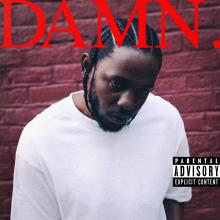
For what the singer/songwriter/music producer Pharrell said two years ago about Kendrick Lamar is absolutely true. Kendrick Lamar is the Bob Dylan of his generation, an American storyteller on the same plane as Toni Morrison, Eugene O’Neill, Pearl S. Buck, and other U.S. Nobel Prize in Literature laureates. Why this statement may seem overblown is because of highbrow bias against hip-hop, which is to say bias against black language, black storytellers, black people. But, to quote Chuck D, the leader of the rap group Public Enemy, hip-hop is “CNN for black people.” And Lamar is the best reporter in the business.
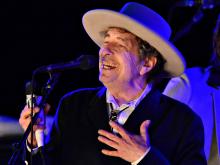
Scholars of Dylan — and they are legion, with many offering entire courses on the singer’s record catalog — have long highlighted the religious imagery of his work. From Old Testament references in “All Along the Watchtower” (1967) and “A Hard Rain’s A-Gonna Fall” (1976) to the New Testament basis of “Gotta Serve Somebody” (1979) and the spiritual yearning of “Thunder on the Mountain” (2006), Dylan’s lyrics and music have long reflected his own restless, seeking soul.

Bob Gersztyn owned a fine collection of 300 rock ‘n’ roll albums in 1971, the year he accepted Jesus Christ as his personal Lord and Savior. Among them were some choice 1960s vinyl from Jimi Hendrix, the Beatles, Bob Dylan, and the Mothers of Invention.
But all of a sudden, this was the devil’s music.
“I destroyed some of them with a hammer and took the rest to a used record store,” he recalled with a laugh. “I think I kept 10 classical music albums that I decided were not anti-Christian.”
Gersztyn retained his love of rock ‘n’ roll, but limited his listening to Christian rock, a genre that was just getting going in the era of the hippie-inspired “Jesus freaks” and the hit Broadway musical “Jesus Christ Superstar.”
He joined a Four Square Gospel Church in Los Angeles, enrolled in Bible college, and became a Pentecostal preacher. He also started emceeing and booking concerts for such Christian artists as Keith Green to 2nd Chapter of Acts.
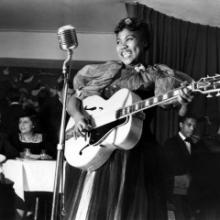
Before Elvis and Chuck Berry and Johnny Cash. Before Aretha and Whitney and Beyonce. Before the blues met gospel and conceived rock ‘n’ roll, there was Sister Rosetta Tharpe.
The first gospel superstar, Tharpe was a guitar hero in a flower-print dress whose bluesy chops and strutting style would be mimicked by countless acolytes, both white and black.
“I mean, she’s singing religious music, but she is singing rock ‘n’ roll,” said one such devotee, Jerry Lee Lewis, of “Great Balls of Fire” fame. “She’s hitting that guitar, playing that guitar, and she is singing. I said, ‘Whoooo. Sister Rosetta Tharpe!’”
Though no longer a household name, Tharpe gets the star treatment in a new documentary for the PBS series American Masters. Sister Rosetta Tharpe: The Godmother of Rock & Roll will be broadcast Friday on PBS in honor of Black History Month.
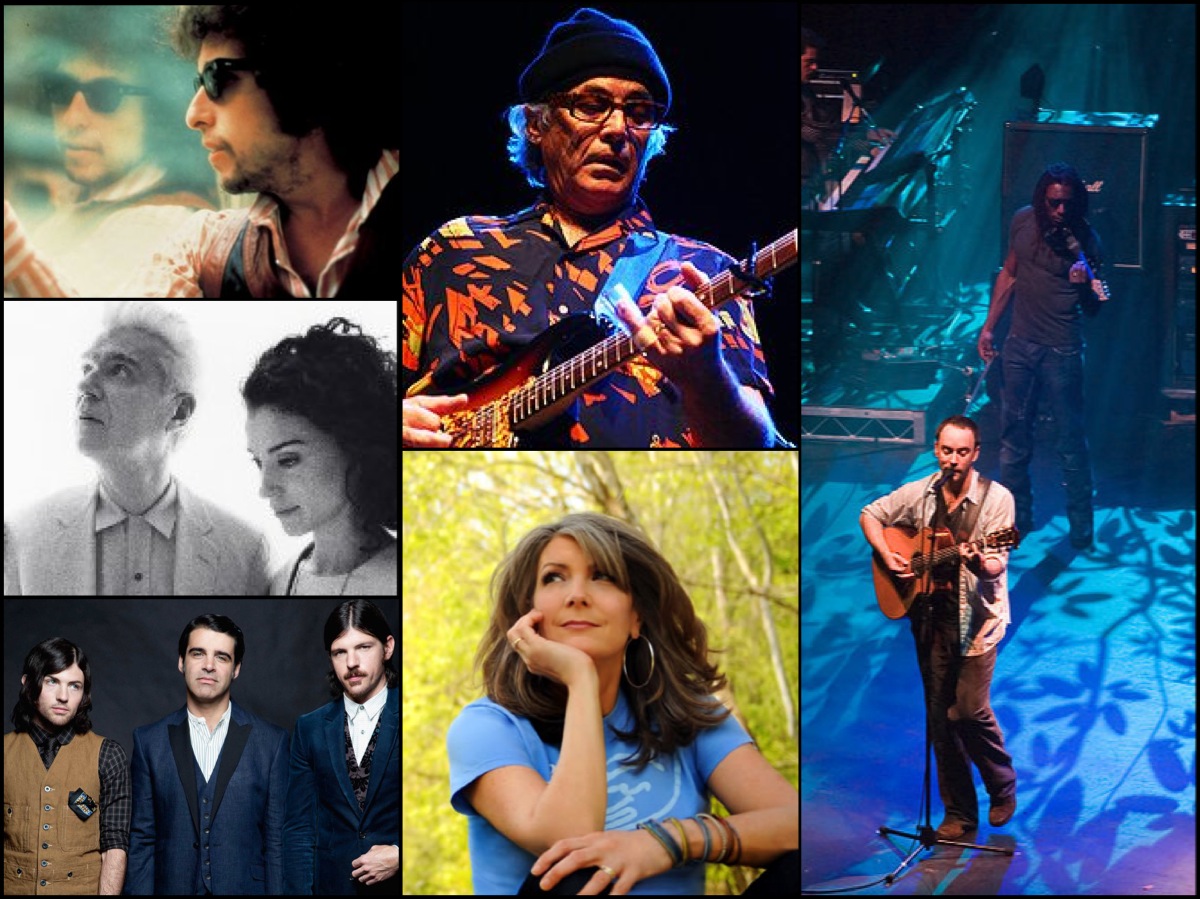 New music from Ry Cooder, Bob Dylan, The Avett Brothers, Dave Matthews Band, Kathy Mattea, and David Byrne & St. Vincent.
New music from Ry Cooder, Bob Dylan, The Avett Brothers, Dave Matthews Band, Kathy Mattea, and David Byrne & St. Vincent.
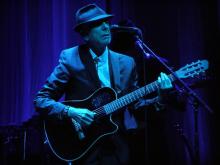
It doesn’t seem seven years since Leonard Cohen’s last album because the man has spent the middle years of his 70s up to his wrinkles in a whole lot of activity including critically acclaimed concert tours that produced a plethora of CDs and DVDs and a No.1 hit single via the dubious conduit of X Factor winner Alexandra Burke!
The years between 2004's Dear Heather and his latest album Old Ideas have built Cohen’s status to a Zen guru presence. For weeks there has been anticipation about this new record not because the public is imagining some reinvention at the age of 77 but more that he is the closest thing rock music has to a spiritual sage and we are waiting for the wisdom he has to share.
Old Ideas is no disappointment for those looking for spiritual songs.
On Tuesday, the Rabbit Room in Nashville, Tenn., invited Dr. N.T. Wright to speak to a fairly small gathering. He brought his message in both word and music. Here is, for more than a few in the room last night , the highlight of the evening. Behold, Tom Wright sings Bob Dylan.
Unlike the earlier turn-of-the-20th-century Pentecostal movement, which created a plethora of new denominations, the Charismatic Movement — with its emphasis on the felt-presence of the Holy Spirit, intimate worship, healings, and spiritual gifts as written about in the New Testament — united Lutherans and Catholics, East Orthodox and Episcopalians, promising in its early years to utterly remake ecumenical dialogues into a fully-felt move of the Spirit.
These heady early days inspired everyone from the Jesus Movement to Richard Rohr and many believed that a new fullness of Christian faith was being formed.
Then, as often happens as new movements grow and spread, things got messy. Denominational officials became suspicious; new denominations like the Vineyard were born, attracting new Christians such as Bob Dylan.